THE MAN ARNOLD JANSSEN
Who was Arnold Janssen – a man who still today fascinates men and women from all over the world?
Let us answer this question by painting a portrait of him.
For painting that portrait I will rely first on the article by Fr. August Arand SVD: “Arnold Janssen as I saw him” (August Arand, Arnold Janssen as I saw him, in Peter McHugh, ed., Arnold Janssen yesterday and today, Analecta SVD – 63/III, Rome 1998, pp. 28-36). With Fr. Arand’s help I will present Arnold Janssen in his outward appearance.
But a man has not only an outward physical appearance, he has a soul which gives life to the outward appearance. After having painted the physical features we will therefore look into Fr. Arnold’s soul.
Where will we find what formed his soul? The answer is short: in his family.
So I will also look at the family in which Arnold Janssen is rooted.
Fr. Arnold’s appearance – “Arnold Janssen as I saw him”
I will now follow the article by Fr. August Arand SVD: “Arnold Janssen as I saw him” (August Arand, Arnold Janssen as I saw him, in Peter McHugh, ed., Arnold Janssen Yesterday and Today, Analecta SVD – 63/III, Rome 1998, pp. 28-36).
Fr. Arand arrived in Steyl in 1884 and was ordained in 1895. He worked as a missionary in Togo but had to leave Togo for health reasons. Back in Steyl he was first a teacher, later he gave parish missions and finally he worked as a journalist. He died in 1955.
Fr. Arand describes the “external appearance” of Fr. Arnold: “In this article,” so Fr. Arand writes, “’external appearance’ is taken in the general sense. In it I include everything concerning his person and appearance which I could observe through the senses when I knew the Founder and which has not been described in other articles” (ibid., p. 29).
Fr. Arnold resembled his mother as you can see when you compare their photos. He was smaller than his brother John, “a tall, slender man who died of tuberculosis in 1898” at the age of 45. Fr. Arnold was also smaller than his brother William, better known as Capuchin Brother Juniperus.
“One can see from photographs that in his youth Father Arnold was well formed with a slender figure, that is with a frame neither too large nor too small.” His eyes “were unappealing.” The look he and his brother John had could startle people. “Later his gaze became mellower, but it always had a great seriousness, especially when he looked at someone inquisitively. In dealing with strangers he preferred to keep his eyes closed. He even did this with us, especially if someone was explaining something to him and he was not in a hurry. Keeping his eyes closed helped him to maintain calmness and self-control.
His blond eyebrows and eyelashes contrasted with his brown eyes. From about 1886 onward, as his face became broader, his eyes differed considerably. The right eye became smaller and lower than the left and the face out of proportion.”
His early photos show the strong features of a teacher with a lively but firm look. Later his face lost the severity of a teacher and took on the benevolent look of a father. In later years one could even say that his features had a spiritual appearance.
In his younger years he did not wear glasses, but he needed them in his fifties for distance vision. He used the ordinary oval shaped lenses in a steel frame and would not wear any other kind, especially not ones with a gold frame.
His lips were not prominent; they were, in fact, quite thin and hinted at seriousness and determination. When he rejected something he considered unimportant, he would curl his lower lip.
He always kept his laughter under control. His brother John’s laughter seemed to be forced, but when Fr. Arnold laughed it was with an open mouth though not loud. The fact is that he seldom laughed and seldom made us laugh, but he did enjoy it when, on special occasions, there was hearty laughter. The celebration of his name’s day offered a good chance for general merriment; whoever contributed to it, was sure of his approval.
He had short, well formed hands, not bony ones like his brother John, but chubby, soft ones. In spite of a lot of writing with a steel pen and ink, his hands were always clean.
His handwriting was small and scratchy. In his day, small handwriting was considered the best.
His blond hair lost his youthful abundance in the later years of his life. It was neither thick nor curly, but rather straight and soft.
He had a broad nose which, in later years, became a prominent aspect of his features. It did not remain in the center of his face, and when his eyes became uneven the facial symmetry he enjoyed in his youth was lost. In his old age, his face was an exact copy of that of St. Vincent de Paul. If Father Arnold had grown a beard, he could have passed for Vincent de Paul.
When Fr. Arnold was 60, he bowed to the wishes of others and had a set of dentures made, but without gold. He did, however, allow the members of his Society to have gold teeth. He had a preference for bread crust, but his new teeth did not help much for chewing it. He would soak it and then eat it with a knife.
At the table he ate quickly. He did not have the English manner of eating with fork and knife, but cut the desired portion into small pieces. He hardly spoke when he was eating and did not look up. He did not use toothpicks but he always had a glass of water at hand. His speedy completion of the meal did not disturb those who were at the table with him.
His voice was not timid, nor irascible, scolding nor commanding. At quiet moments it was somewhat soft. Even when he was excited it would not be sharp and rude. Like his brother Gerhard, he inherited the high pitched voice of his mother. He never fully lost the accent of his hometown of Goch.
In his sixties his memory began to fail him and during his conferences there were often embarrassing pauses. At such times, with his mouth closed, he would take two short, audible breaths through his nose. We eventually become accustomed to it. He had frequent fits of sneezing during which he would keep his mouth closed.
His clothing looked in good order – thanks to the Brother who took care of his room. Until he was in his sixties he did not wear an overcoat at Steyl during winter. He would wear one and a hat when traveling. He left the second and third buttons of his cassock open so he could more easily take out his watch or pencil.
Fr. Arnold did not wear his watch on a chain. In his room and during examinations he would lay it on the table in front of him.
Until 1886 no one wore the biretta outside the chapel. The biretta did not look good on the Founder. When preaching, dressed in a surplice, he wore the biretta low on his forehead. It made him look just like a death’s head. The simple skull cap of light material, however, left his wide forehead free. He always removed it for the quarter-hour prayer.
He wore long black socks with elastic-sided shoes but without buckles.
Fr. Arnold used a large red handkerchief (until his death), (70×65 cm).
His walk was somewhat uneven since he stepped more firmly with his right foot and so he seemed to limp when he walked fast [In that he followed his mother as Fr. Peter Bill observed when he once visited the Janssen family in Goch]. He did not have a firm, military step, nor a measured, majestic one. He had rather the carefree step of a man from the countryside.
He did not swing his arms when he walked; he looked at the ground, about three steps ahead. If his hands were free they hung at his sides, even when he was walking through the chapel.
The Founder did not talk about his personal health nor did he trouble others with bothersome advice about such matters. Like all the other priests, he took care of himself in his room, to the extent that it was possible.
He did not call others by name but got their attention with a vigorous double “Psst, pssst”. He used proper names when he spoke to or about a person. He addressed the brothers by their religious names. With the priests he used the formal YOU (Sie), and with the brothers, the familiar you (Du).
Among modern foreign languages he had a good command of French.
Visitors were not permitted into his room. He would receive them at the entrance, remain a short time and, when possible, have someone else take his place. As a rule, he would seat his guest where there was more light while he himself would sit in shadow.
The priests adopted his custom of reading the newspapers during the recreation period after meals. He would not read an article to which someone called his attention, but preferred to choose for himself. It must be said that he was not the proverbial, absent-minded professor type. His posture was not sloppy and when sitting, he never crossed his legs at the knees, only at the ankles and his socks were never loose or untidy. His skullcap was always clean. Sometimes a corner of his large handkerchief could be seen sticking out of his cassock.
He was punctual at prayer times and for meals. If he did come late, he excused himself, but only briefly.
Did Fr. Arnold have favorite foods?
No, but the food had to be tasty.
What about alcohol?
He liked beer, wine he drank at official occasions or when in Rome. I think around 1889 he gave permission to start a brewery for beer on St. Anne’s farm. This beer was even exported to Togo.
He wanted the confreres to eat butter because it was nourishing. Fr. Blum objected and said butter was too expensive. But because butter was so nourishing and the students had to be strong and healthy he gave orders to continue using butter.
Fr. Arnold’s spiritual roots
A couple of times it has already been mentioned how Fr. Arnold followed his mother: from her he had inherited his high pitched voice and his limping walk. These remarks point us to the family in which his character was formed and in which he had his spiritual roots.
Here is the Janssen family – the mother and her 8 children. Unfortunately we have no picture of his father.
Arnold Janssen’s parents were Gerhard Janssen and Anna Katharina Janssen. They lived in the town of Goch, near the border with the Netherlands. Goch was part of the kingdom of Prussia. So, originally Fr. Arnold was a Prussian citizen. Only in 1871 when Bismarck founded the German Empire did Fr. Arnold became a German citizen.
Gerhard Janssen lived from 1801-1870; he died at the age of 69. His wife Anna Katharina Janssen lived from 1809-1891; she died at the age of 82.
Anna Katharina gave birth to 11 children, but three of them died when they were very young. Eight children survived.
Mr. Gerhard Janssen had a small farm, a few horses, cows and pigs. He also ran a small export–import business: with his horses he would bring goods from Goch to the Dutch town of Nijmegen and on his return trip he would bring goods from there to Goch.
The house of the Janssens was also a storage place for salt. People from Goch and neighboring towns would come to the Janssens and buy salt from them.
This was the family in which Arnold Janssen grew up. Here in this family young Arnold learned to love God and in particular he learned to love prayer.
Why can we say that? Because his parents loved to pray.
Fr. Arnold said about his father:
My father was a plain and simple man, a caring father and good Christian. On Sundays he zealously attended Mass and went to church twice in the morning and once in the evening. He also had the custom of going to Mass every Monday to implore the blessing of the Holy Spirit for the week ahead. In the family he insisted on frequent reception of the sacraments and particularly the fulfillment of Christian duties.”
About the veneration of the Holy Spirit, Br. Juniperus Janssen, the younger brother of Fr. Arnold also adds the following:
The veneration of the Holy Spirit – father spoke about it with great enthusiasm. How He blesses the fields, how He is the peace of the souls who preserves the peace of the family and the souls when one loves and serves the Holy Spirit. …. The priest wears the red vestment at the altar because the Holy Spirit is the fire which ignites man and pushes him to do good. We children then looked amazed at father when he taught us in that way and encouraged us to venerate the Holy Spirit (Bornemann., pp. 224-225).
Br. Juniperus Janssen also tells us that his father “offered the High Mass he attended on Sundays in honor of the Blessed Trinity” (in Bornemann, Remembering Arnold Janssen, p. 20).
There is a famous legend about St. Augustine. When writing his book on the Trinity a boy taught him that it was impossible to express in words the mystery of the Trinity. Gerhard Janssen often spoke to his family about this legend in order to explain the mystery of the Trinity. Fr. Arnold wrote to his brother John on July 10,1884:
“How often did he speak about St. Augustine and the child who tried to pour the whole ocean into a hole in the sand!” (Alt, Journey in faith, p. 715).
He began all his work with the words: “All in the name of God the Lord” (ibid., p. 19).
About his mother Fr. Arnold said:
My mother, a good woman, suffered much from stomach pains before she was married. After her marriage she had many domestic worries and had to work hard because God had blessed her with so many children. With only one servant girl she had to look after the whole household, including four cows and several pigs. At the same time, she was a great lover of prayer.
This became even more evident after the death of her husband and particularly when, after the marriage of my brother, a young woman came into the house. As that made it possible for her to devote more time to prayer she went to church very early, despite her age, to attend as many Masses as possible… Whenever there were evening devotions, she was sure to be one of the first in the church and the last to go home again. In the afternoons she went out along Frauentor Street to the cemetery where she prayed a lot at or near my father’s grave.
Then she went to the garden nearby and did little jobs, clutching her rosary which she prayed whenever she sat down in the garden house for a rest.
From Br. Juniperus we also know that the mother loved to pray the stations of the cross:
I was perhaps 9 years old when my mother took me with her one afternoon to visit a relative on a farm in Heulm. However, before we made that visit, mother stopped in the church where the Stations of the Cross had been erected and one could gain the attached indulgences. That was not the case at that time in Goch. As mother went from station to station she knelt down on the stone floor and prayed from a book. Years later whenever I felt lazy, I would recall this incident and bestir myself to go and make the Stations of the Cross” (Bornemann, Remebering Arnold Janssen, p. 22).
The Janssen parents saw to it that the whole family was a praying family.
Bro. Juniperus, William Janssen, tells us a bit more about this:
After supper, from Rosary Sunday in October until the end of April, we recited the rosary, the litany of the Blessed Virgin Mary and the beginning of St. John’s Gospel “In the beginning was the Word.” These were followed by evening prayers and the examination of conscience. Father himself usually was the prayer leader. … Father could discourse with great eloquence on the beginning of John’s Gospel. He said it was the most efficacious of all prayers and had great power with God. Whenever there was a severe storm, a candle would be lighted and then the father would kneel and pray the beginning of John’s Gospel aloud. When one of the cattle fell sick, father and mother would pray it together (Bornemann, Remembering Arnold Janssen, p.18).
The Janssen family as a praying family is confirmed by Fr. Peter Bill, one of Fr. Arnold’s first co-workers in Steyl, who, however, left him after half a year. Fr. Bill made an unannounced visit to the Janssen family in Goch:
“When I entered at the front door [of the house] I heard such a humming and buzzing in the house I doubted whether I should proceed or not. But as I came closer, I realized that as they worked they were alternating in the recitation of the rosary in loud but reverent voices” (ibid., p. 23). They were actually butchering a pig.”
In his family young Arnold not only learned to love prayer, but he was also made familiar with missionary work.
Again it is Br. Juniperus who remembers:
Father always received the yearbook of the Propagation of Faith. That was like his daily bread. He would read the letters of missionaries with a warmth and enthusiasm I could never understand. I always thought that stories were much more interesting than letters from missionaries with their sufferings and sacrifices and obedience. But Father would say: “These are the heroes of faith who sacrifice everything for God.”
Then like a master of novices he would talk about the three vows the Jesuit Fathers took, about voluntary poverty and obedience. They have to go wherever their order sends them. Today they receive a letter from their superiors; tomorrow, with their breviary in their bag, they must be on their way to an entirely different assignment.” (ibid., p. 18).
Fr. Arnold’s talents
In order to be accepted into the Episcopal high school in Gaesdonck, young Arnold had to pass an entrance exam. Against his own expectations, he passed it. He wrote:
“Later I often wondered how I managed to pass at all… In the main subject – Latin – I had by no means achieved the tertia level (which was hardly possible after only a year and a half of study!..) Nonetheless, my knowledge of mathematics and religion pulled me through. Fr. Perger, the president, loved mathematics. …” (Josef Alt, Journey in faith, p. 10). Because Arnold did so well in mathematics his fellow students called him ‘Pater Mathematicus’ (ibid., p. 10).
Fr. Arnold’s natural science inclination reveals itself in the following story told by Br. Juniperus:
“During the summer holidays he [Arnold] would bring our breakfast to us in the fields. He used this opportunity to study the tree mosses” (Bornemann, Remembering Arnold Janssen, p. 27).
While studying philosophy in Münster he decided to go first to Bonn to study Mathematics and Natural Sciences before continuing his theological studies. We will let him tell us himself his reasons for doing so:
In letters to the Director of the Gaesdonck, Fr. Perger, he wrote about his love for mathematics:
“While studying in Gaesdonck, where a cruel necessity forced me to spend almost all of my time on the hated philology, I often longed for the time where I could dedicate myself undividedly to my beloved mathematics.”
“I came to Muenster … with the express intention of staying here for an indefinite time and studying mathematics. This first year I have made very good progress, and now that the time has come to decide whether to go on to theology now or later, I have come to the firm decision to study mathematics and natural science for another two or three years to get a degree in these subjects and then go on to theology. … The reasons which have brought me to this decision are, on the one hand, my fondness for these sciences, and then also my leaning towards a teaching career” (Bornemann, Arnold Janssen, P. 11).
His professors in Münster encouraged him to study outside of Muenster for a while. “Yes, one Professor, Bisping, “thought it to be almost absolutely necessary for me” to study at another university, if only it could be made possible, so Arnold Janssen wrote to Fr. Perger in 1856.
In Bonn he did very well. He won a prize in mathematics and also in botany: “Despite some shortcomings his answers to the competition question in botany for 1857/58 on plant monstrosities deserves high praise” (Alt, Journey in Faith, p. 17).
It is interesting to see how his professors in Bonn assessed him:
“In his German essay on the question, ‘Is the induction method applicable to the field of mathematics? And if so, to what extent? And in what way?’, the candidate treated this controversial subject thoroughly with independence of thought, thereby showing an achievement that would deserve broader and deeper development. The presentation is to be commended for clarity and sureness of approach. …
In philosophy the examiners were pleased with his ‘talent for this manner of reasoning.’ They were even of the opinion that if he were to continue his studies in this line, ‘his ability to clarify and define concepts would serve as an introduction to logical thinking for students of all subjects he will teach.”
“In a practice class, he had to teach how to solve quadratic equations. Though the class already knew the subject matter, his clarity of exposition succeeded ‘in arresting the attention of the students’ ” (ibid., p.18-19).
His first employment as priest and teacher was at the junior high school in Bocholt.
He prepared his classes in scientific experiments carefully. He also made an extensive collection of teaching aids for his subjects. In physics, for example, he had apparatus to demonstrate the laws of hydromechanics, sound, heat, magnetism and electricity, 37 items for the latter alone. His mineralogical collection consisted of more than 300 items. For paleontology there were representative fossils from many of the geological formations found within the Muenster district. His large botanical collection included microscopic slides, and even a small crocodile was among the more than one hundred items of the zoological collection (Bornemann, Arnold Janssen, p. 16).
Fr. Arnold’s student Schueling remembers:
“His classes in natural history were especially interesting. Even when we sometimes brought a relatively rare flower to class he immediately identified it. Most interesting of all, however, were his classes in astronomy, even for us youngsters in the third and fourth years. Young as we were he made us acquainted with the heavenly bodies and the marvels of the universe”(Bornemann, Remembering Arnold Janssen, p. 35).
One of his secretaries, Fr. Hilger, describes in a beautiful way Fr. Arnold’s love for nature:
“For the whole of creation, humanity, animal and plant life, this man of God had an attentive eye, rather like St. Francis of Assisi. In all things he encountered the God of his heart in his wisdom, might and beauty. Inimitable was the warmth of his speech whenever he saw traces of God in the common things of creation and exclaimed in awe at their presence. One felt that his whole heart was there; nothing was too insignificant, for everything led him to God. He was a friend of nature and friend of the machine, a friend of flowers and fields, of meadows and woods and in recreation time he liked to sit down in a meadow and wooded area. However, in St. Rupert’s woods he would do this only after stirring the leaves on the ground with a walking stick to drive away any poisonous snakes, about whose presence he had been warned. We often sat down among the ripe blueberry bushes and gratefully accepted the berries offered to us by children playing in the woods. Arnold was a friend of the clear spring water as well as of the murmuring streams, the rushing rivers and the surging sea, a friend of towering mountains, a friend of the stars which sped through the universe …
Arnold showed his wonder at the foaming Salzach River and the churning rapids of the Fritzbach, on whose banks one could not understand a single word due to the noise of the roaring and gurgling of the water. He observed, “How clear and penetrating is this expression of divine power and might of which the powers of nature are just a pale shadow. How innumerably many features of the uncreated divine being are revealed in the many–sided riches of creation.”
But, so Fr. Hilger writes, “one would have to hear the servant of God himself saying such words in order to understand properly how they came out of his holy soul full of God’s presence. I regard it as an unsurpassable grace that I was a witness to this. In everything Arnold saw the radiance of God’s face shining forth. … With a thousand roots his love for God drew nourishment from everything” (Anthony Hilger SVD, The 100th Birthday of Arnold Janssen (1937), in Peter McHugh, ed., Arnold Janssen Yesterday and Today, Analecta SVD – 63/III, pp. 73-74).
In his article “Transitory and Lasting Aspects in the Portrait of the Founder”, Fr. Bornemann writes under ‘The Enduring Traits in the Character of Arnold Janssen’: He was a mathematician and a student of nature (in ibid., p. 139).
Fr. Arnold and visionaries/visions
Fr. Arnold was a great admirer of Blessed Anna Katharina Emmerick. He published her visions about the life of the Holy Family in Nazareth in his mission magazine “Kleiner Herz Jesu Bote” – “Little Messenger of the Sacred Heart”.
For a period of time he believed in the visions of Frau Magdalena Leitner. He believed that the Holy Spirit gave her messages for him and the society.
For a while he must also have taken seriously the visions of Sr. Aufrida/Seraphim, first superior of the Adoration Sisters, with regard to the Holy Spirit, until one vision brought his brother John into conflict with Rome. From then on visionaries had no more place.
Fr. Arnold, the politician
One of Fr. Arnold’s most trusted co-workers and finally confessors, Fr. Hermann auf der Heide wrote:
In Fr. H. Fischer’s biography of the founder his political activities have not been mentioned. With regard to them there must be copies of letters in the archive of the Superior General. Some letters I wrote and copied. He wrote for instance to Prince Franz von Arenberg and other deputies of the center party in Berlin. Once he told me that he had recommended to the government in Berlin to readmit the Lazarists [Vincentians] in Germany. And he had pointed out the charitable works of their founder, St. Vincent of Paul.
Fr. Arnold –the man of prayer
Coming from a praying family, it does not come as a surprise that Fr. Arnold developed into a man of prayer who wanted his spiritual sons and daughters also to be men and women of prayer and who therefore gave them, for instance, the Quarter Hour Prayer.
Fr. Anthony Hilger, one of his private secretaries, gives the following testimony:
Fr. Arnold lived uninterruptedly in the presence of God. “His vast labors, of course, allowed him little time for special prayer; on the other hand, his whole life and labor were prayer. He was habitually in an attitude of prayer. This statement is no mere cliché, but a deep, lasting, ineradicable impression, gained during my long association with him.
As he was dictating letters, his thoughts would sometimes stop flowing. I would see him silently move his lips in prayer for help to find the right words. Often he asked me to kneel down with him and pray the Veni Sancte Spiritus, since he was seeking divine aid to determine the proper tone of the letter. After doing so, I noticed that his dictation proceeded smoothly, in contrast to the laborious way in which he had been formulating his sentences before. ‘You see,’ he would then remark at the end, ‘the Holy Spirit did grant his assistance.’” A visit to St. Peter’s in Rome on the day before Trinity Sunday was unforgettable for Fr. Hilger: “Within sight of the majestic cathedral of all Christendom we prayed together the first vespers of the feast…. From his clear intelligent eyes beamed a glowing joy and happiness as he closed his breviary and said, ‘Surely there is something truly glorious about this great feast.’ He was immersed in meditation on this deepest mystery of our holy faith…” (Anthony Hilger, A private secretary’s impression of our founder, in Peter McHugh, ed., Arnold Janssen Yesterday and Today, p. 53-54). We can also say: He was immersed in a dialogue with the Blessed Trinity and we may say so because he himself had made this resolution:
“May my meditation consist of a heartfelt dialogue with the eternal Father and Son and the eternal love of the Holy Spirit”, was one of his personal resolutions.” (Alt, Journey in faith, p. 715).
Fr. Arnold’s charity
His secretary, Fr. Hilger, said:
My memory of Arnold Janssen is as a self-made man in the best sense. He worked on bettering himself until old age. He used God’s chisel on himself and in a special way he showed both endurance and untiring effort, the like of which one seldom finds today. It was not something light and easy to change himself, this fellow who
seemed to his fellow students to be a stubborn eccentric. He once said to his landlady who wanted to raise the rent: “I will not pay more rent and not move out either!” When the same landlady wanted to rearrange the garden paths, he simply forbade her to do so because he wouldn’t be comfortable any more when saying his
breviary walking along these new paths. An important guest of the mission house, in whose honor all Steyl was decorated, asked for a bottle of beer but Father Arnold did not give it to him out of concern for the man’s hankering for alcohol. He could be so unfeeling and sharp in his judgment that one would rather see the back of him
than his face. I can really say that it was not easy for Arnold to change from being such a man to a different person, mild, forbearing, helpful and humble, who did not lose his calm at even the sharpest contradictions; who treated all in the same way, even the youngest; who was so attractive through his paternal goodness, and who made requests of others with such humility and modesty, even though he could have issued a simple command. He also accepted the refusals of others, even from those who were especially obliged to him. In short, he changed himself into a person of heroic virtue and therefore is suitable for the honors of the altar.
(From: Anthony Hilger, The 100th Birthday of Arnold Janssen, in: Arnold Janssen Yesterday and Today Analaecta 63/III, p. 65).
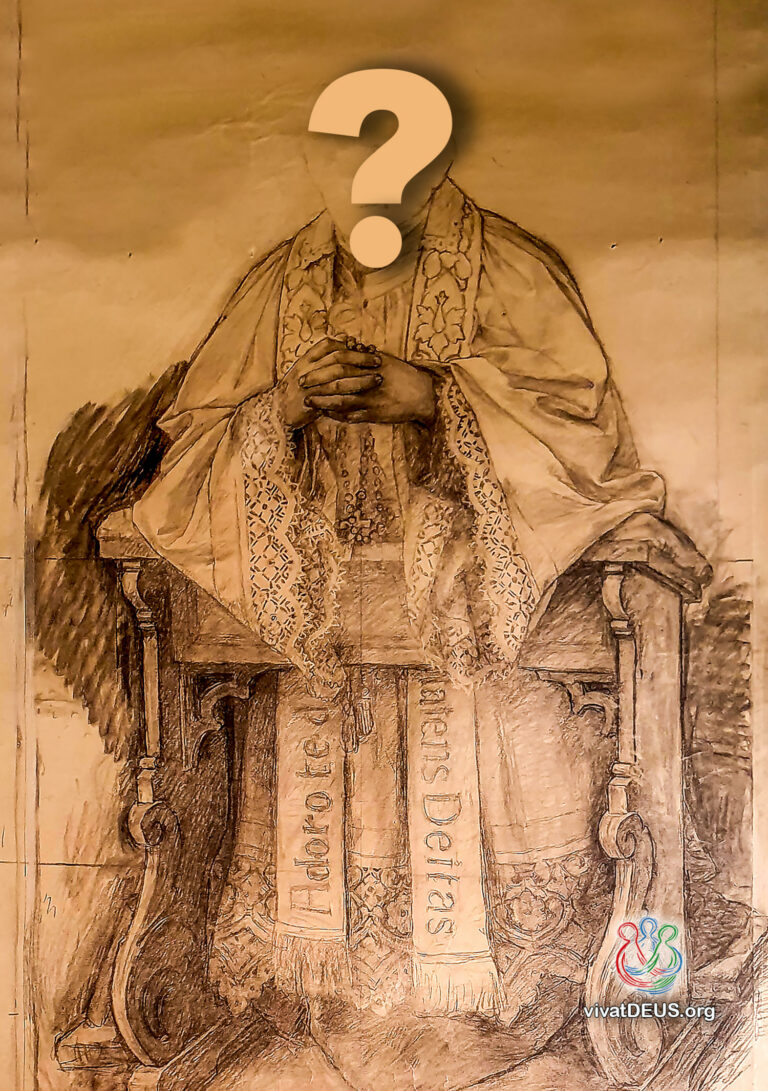
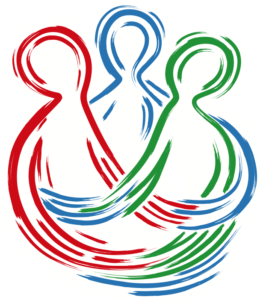
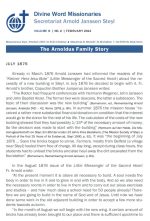
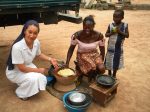

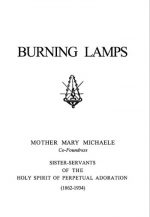
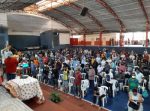
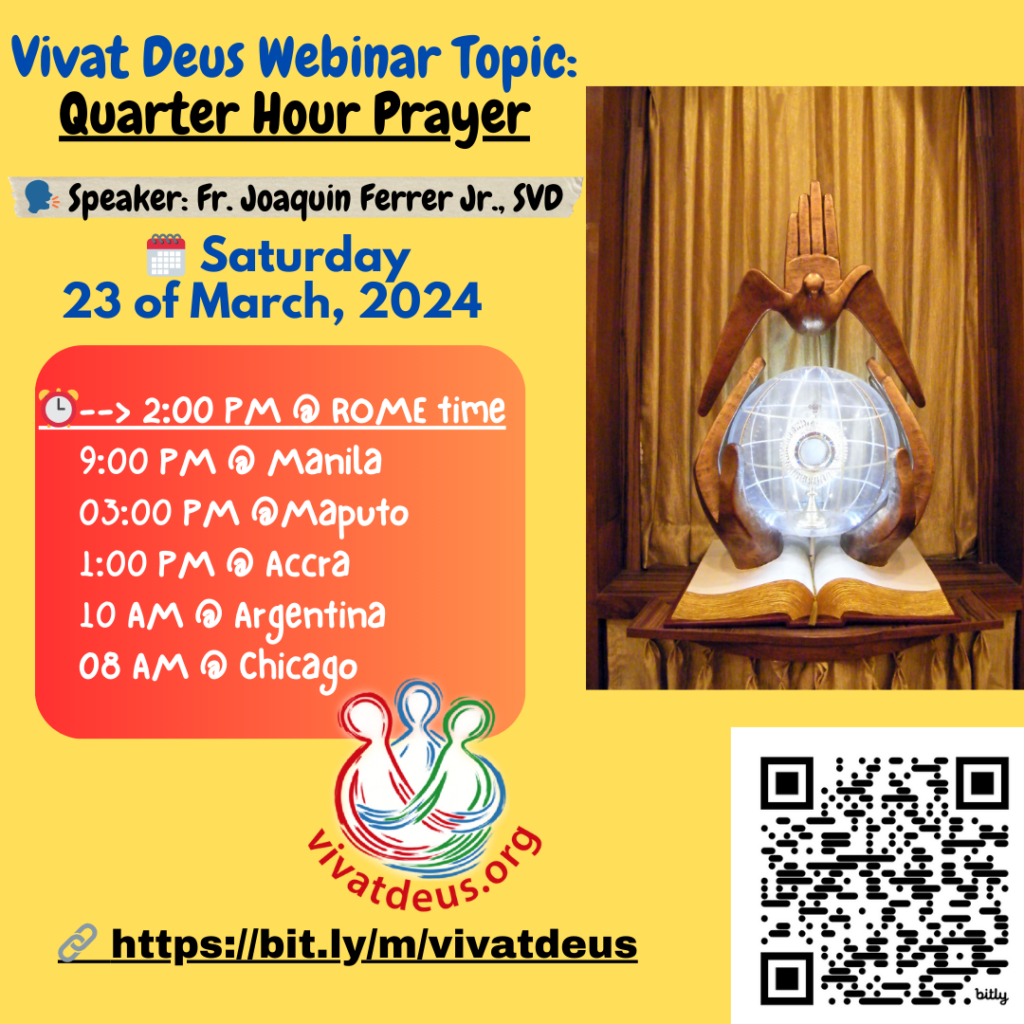
2 Responses
Gracias. He disfrutado leyendo y profundizando el retrato sobre el Padre Arnoldo. Lo he sentido ceca de mí.
Ana María, gracias por compartir! San Arnoldo guarda aún muchos misterios! Seguiremos publicando cosas sobre él.